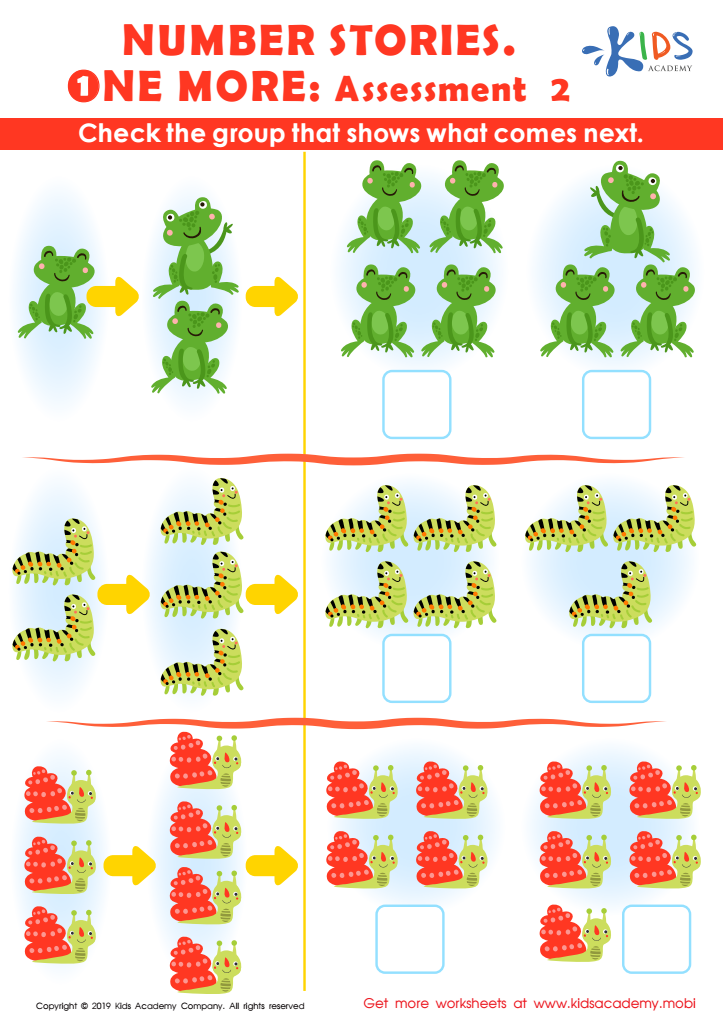Normal Counting worksheets activities for Ages 3-5
1 filtered results
-
From - To


Number Stories One More – Assessment 2 Worksheet
Normal counting worksheets activities are an essential tool in the foundational development of a child's mathematical skills. These activities not only introduce the basic concept of numbers but also enhance a child's ability to recognize, understand, and apply numerical order in a practical context. The significance of these worksheets goes beyond mere counting; they are a stepping stone towards more complex mathematical operations and problem-solving skills.
First and foremost, normal counting worksheets activities are instrumental in developing number sense. This involves understanding the value of numbers, their relationships, and how they can be manipulated. Through repetitive practice, children begin to grasp the idea that numbers are not just symbols but represent quantities. This foundational understanding is crucial for the development of arithmetic skills, such as addition and subtraction, which are built upon the concept of counting.
Moreover, these activities are designed to enhance cognitive development. As children engage with counting worksheets, they are challenged to think critically and develop problem-solving strategies. This mental stimulation is vital for cognitive growth, contributing to a child's overall intellectual development. It helps in improving memory, attention, and the ability to focus, all of which are essential skills not only in mathematics but across all areas of learning.
Another significant benefit of normal counting worksheets activities is their role in boosting confidence. Mastery of counting through continuous practice gives children a sense of achievement and self-assurance in their mathematical abilities. This confidence encourages them to take on more challenging tasks, fostering a positive attitude towards learning.
In conclusion, normal counting worksheets activities are much more than a simple exercise in number recognition. They are a critical educational tool that lays the groundwork for mathematical understanding, cognitive development, and personal confidence. By engaging children in these activities, educators and parents can significantly contribute to their overall academic success and development.

 Assign to My Students
Assign to My Students
















